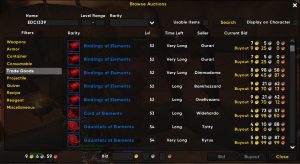The use of technology in teaching and educational platforms is becoming the world best methods for teaching our new generations to not only have a strong sense of technological literacy, but to think more critically and to solve problems more efficiently. The global trend leading towards a more heavily used focus on technology caters to this idea directly. The use of online infrastructure not only allows interaction in the classroom, but a richer experience for students at home when researching and preparing classroom material. The use of video and website projects can quickly teach students the importance of security, safety and respect but also allow for creativity in answers and a more independent fun  experience. Currently in our society many people are being instructed to change from face-face encounters to a more online focused approach. With this comes exploration in new technologies and a case study showcasing the importance of online and distributed learning. With the population moving from outside to in, its never been a better time to learn from the comforts of ones home.
experience. Currently in our society many people are being instructed to change from face-face encounters to a more online focused approach. With this comes exploration in new technologies and a case study showcasing the importance of online and distributed learning. With the population moving from outside to in, its never been a better time to learn from the comforts of ones home.
The use of media in a classroom is something that has been used as a tool for many generations, with the incredible aids that stimulate different senses, where students are more driven to focus and learn with the entertaining medium. Where some students will find the “Normal” school structures to be a way for teachers to broadcast their curriculum, online learning allows for a more open communication between students and teachers. With this communication grows a strong learning community, where people students feel less pressured to perform in front of their peers. This allows for a richer learning experience as the variable of fear is almost entirely gone. By displaying media through a technological lenses, we do gain many advantages, but some aspects of social connection to peers and colleagues is lost. This can be seen on a playground, a cafeteria or the times between classes. This loss of playful communication is one of the reasons that online can be difficult for younger ages, with the want to “play with my friends” being lost online. Although the physical connections are lost, their are still many technologies in place that are trying to combat these issues directly. Software such as Skype, discord, or another linguistic based hangouts are creating instances of social interaction that might not have excited otherwise. These application are often being used along side online gaming and Virtual Reality. These two mediums of education in my opinion are some of the most untapped markets in terms of educational supplement. Gaming in general requires a strong amount of brain power to perform under the “pressures” of the environment. This could be a pinnacle tool in addressing the select students that have a harder time learning face to face. Games being fully interactive also teaches skills that cant be taught in a classroom, such as reaction speed, burst decision making and an overall increase in problem solving. From personal experience this medium not only increases my want to learn, but also increases the enjoyment of learning which is one of the most typical reasons for a student to fail to complete an assignment, not wanting to do it. An example of this comes from the game world of Warcraft, where you are essentially creating a character that undergoes its own life. With interactions between players, creating an economy, and learning from failures and experiences. Below is a picture of the “Auction House” where players create an economy that everyone follows on the server.  One of the strongest methods to learn online comes from the learning and appreciation for MOOCs. These massive online learning environments are currently the best way to learn online, with interactive activities, free open source software and clear concise instruction users are able to handle the content with a breeze. The optimized learning environment allows users of all educational backgrounds and talents to be able to showcase there skills in a public setting. With this comes the learning of fundamental skills that will help them progress through whatever content and subject matter they are studying far more efficiently, with a significantly lower cost often free. I have greatly benefited from using a online service such as this, to not only learn about content that I wouldn’t normally have access to, but to advance my self over other students in my field. This in hand will eventually allow for further learning and showcasing of these new talents.
One of the strongest methods to learn online comes from the learning and appreciation for MOOCs. These massive online learning environments are currently the best way to learn online, with interactive activities, free open source software and clear concise instruction users are able to handle the content with a breeze. The optimized learning environment allows users of all educational backgrounds and talents to be able to showcase there skills in a public setting. With this comes the learning of fundamental skills that will help them progress through whatever content and subject matter they are studying far more efficiently, with a significantly lower cost often free. I have greatly benefited from using a online service such as this, to not only learn about content that I wouldn’t normally have access to, but to advance my self over other students in my field. This in hand will eventually allow for further learning and showcasing of these new talents.